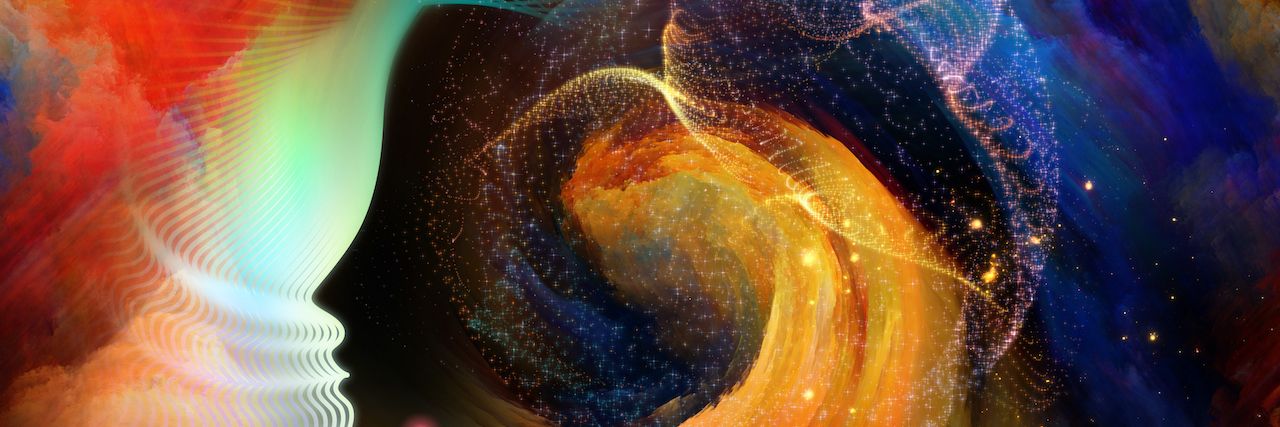The downsides of diagnosing yourself and others could outweigh the benefits.
“I think I’m a sociopath,” said a handsome young guy the first day he came looking for therapy.
“Really? What makes you say that?” I asked.
“Well, my friends have called me that several times and the other day I read an article that describes me pretty well,” he responded.
“Do you remember what characteristics in the article you identified yourself with?” I inquired, really curious to know if he was aware of the stigma that that particular diagnosis carries.
“I remember that it said that sociopaths talk very fast and you can see how fast I talk; that they use very positive words like ‘fantastic’ which I do a lot; and that they are manipulative; I know I’m manipulative at times. Ah! and I think I never cry.” He concluded.
Situations like that one are more frequent than I wish. More than half of the individuals who come to see me for therapy arrive with a diagnosis “acquired” from a publication or from friends. The most intriguing aspect of these self-diagnosed clients is they speak about their diagnosis as if it was a good or normal thing, as if it validated their existence.
There is also a prevalence of non-professionals diagnosing each other, like friends or partners. I sometimes wonder what’s going on in the mind of younger adults when around 70 percent of them call their partners “narcissistic” as soon as the relationship stops being easy or fulfilling.
Are we really destigmatizing mental health by taking diagnoses so lightly and openly? And are we then making it normal to have a mental disorder? Even though this sounds like a good thing, I have my doubts: Is this practice of self-diagnosis really making us mentally healthier?
Pop Psychology
Articles about mental health are appearing every day in all sorts of publications, including those that previously stayed away from publishing opinions about the mental status of others. The pieces come from all types of professionals: from clinicians who have experience in the subject matter, to journalists/writers that interview academics or clinicians, to individuals who experience the mental challenges themselves. With the help of the internet, there is now an endless number of self-published books written by individuals with no clinical formation talking about mental disorders. They have a tendency to talk about their narcissistic family members, the psychopathic friends, the abusive borderline ex-partners, the traumatizing job environment and their own multiple personalities.
Terms like gaslighting, covert/malignant narcissist, empath, manipulators, toxic, supplies, enabler, alters, etc., populate the titles of pieces under Psychology, Mental Health, Life or Wellness everywhere. They become part of our vocabulary whether we understand where they come from or what they mean.
Articles with lists that sound like “5 ways to identify a narcissist” are the new tools to become experts on “pop” diagnosing. The terms and the diagnoses become popular truths whether they are based on something that accurately describes human behavior, or purely on judgments and newly agreed social terms.
By the way, that’s how stigma develops. By using names to criticize and to assign “verdicts,” we shame the people around us. If they are really going through mental challenges, they will hide away from asking for help. They will either bury their confusion and symptoms, or they will use them as a way to get attention and, possibly, benefits. And the mental health stigma will remain.
One of the reasons I like writing is to share these concerns and to guide some people who could be confused when they see themselves as broken, sick, defective or inadequate. Words like crazy or insane have lost luster, probably because “loony bins” are just cartoons in our reality. As institutions disappeared, the fear of insanity diminished, and now we’ve reached another extreme: we play with labels as if it didn’t matter whether we were mentally ill or not. We are overusing — and maybe abusing — the psychiatric diagnoses.
The truth is, most of the time, people don’t meet the criteria of the DSM (Diagnostic and Statistical Manual of Mental Disorders) even when the manual has been accused of over-pathologizing (King et al, 2020); many times, our behavior is just reflecting emotional difficulties and not full-blown mental disorders.
Self-Diagnosing
It’s not a surprise that people try to find their own way to describe uncommon behavior, since the tool mental health professionals use to diagnose individuals, the DSM, changes the classification of the disorders, names, descriptions, symptoms and criteria every 10 years or so. What used to be sociopathic personality disturbance is now antisocial personality disorder (APD); homosexuality was considered a paraphilia, and now the manual includes something called gender dysphoria. The list is endless and the changes in definitions alarming.
Since mental disorders were not mentioned publicly to refer to people for centuries, it used to take years for the official diagnoses to be named openly. Once they were commonly used, they had already probably officially changed; for example, once we knew Dickens was manic-depressive (Johnson, 1977), the term was obsolete since it was renamed to bipolar.
Unfortunately, now that mental health problems are in the open in every movie, in so many celebrities, in a large number of relationships, naming people through a disorder could become a trend. The amount of misinformation and pathologizing is concerning.
The National Institute of Mental Health states that one in every five Americans struggle with mental illness and during this pandemic, the number circulating is one in every three.
Are these numbers reflecting professional diagnoses or the self-assigned ones? Depression would be a clear example. If a person sees a professional and the first statement is “I’m depressed,” Is this diagnosis taken as valid? All the patient needs to do is give a list of symptoms they read in an article that describes they don’t feel like leaving their bed.
Professional Diagnosing
In terms of mental health, most people have no idea how to identify symptoms. Some individuals think their behavior is “normal” until someone tells them it’s not (even if it is), or when it creates some dysfunction in their relationships or lives; but even when dysfunction is evident, it’s difficult to know where it is rooted or if it’s a symptom. Most people have never seen the actual DSM, or don’t know what “criteria” means.
Finding a diagnosis for a client takes time and careful assessment. Professionals ask many questions in a period of time that goes from a month to a year before they can come to a conclusion. Most clinicians are trained to recognize symptoms or traits that are not normally reported; some professionals apply questionnaires; doctors may prescribe medication and wait to see the effects.
A mental health diagnosis is a combination of detective work with a trial and error testing process. Just think that clinicians only hear one side of the story. To make a diagnosis in a psychiatric hospital, several members of the patient’s social network are interviewed and the diagnosis comes from a team. That’s why it is not ethical to diagnose a person without a close personal interaction with him/her — like diagnosing a politician or a celebrity just by reading or listening to them in the media. Because the margin of error could be enormous.
It’d be fair to say that in terms of understanding the mental status of a person, everything is subjective.
Self-Fulfilling Prophecy
I just wonder if all those labels people carry as identifiers – whether self-assigned or given by others — are influencing their behavior. Through the lens of quantum physics, every process of observation influences the process that is being observed. If we think that the observant sees us as, let’s say, aggressive, we may behave aggressively more often. That may become the habitual way for our brains to react, which will transform our behavior, which may confirm the label, which may reinforce the idea that we are aggressive, which reinforces the habit and so on. Until we may reach the point of meeting criteria (fitting the diagnosis).
Being identified as something may challenge our self-perception and the way we present ourselves, especially if that “something” is a mental illness.
By letting others be the more important observers of our mental state, we miss the opportunity of becoming the observers of our emotions and reactions which is the key to a healthy mind. Letting others “assess” our mental status leads to dissociating from our own observing ego (a part of our self that has no affect, engages in no actions and makes no decisions). By listening to the value of those judgments in the way of diagnoses, we distance ourselves from our core.
That component of our psyche so concerned with how others see us can become our ticket to mental disorders; it influences the way we think we are and changes our identity, personality and behavior. Not light or cool as it sounds.
How to Benefit From Understanding Mental Disorders
Professional help is always better, but many times not affordable. Hence, “pop psychology” has many benefits. Knowing about mental disorders and their symptoms may be the best way to recognize them in you, learn whether you may be struggling with emotional issues, and move into looking for help to start recovery.
Understanding our loved ones – friends or anyone we interact with — and the reason why sometimes they behave a certain way that seems off or inappropriate is also helpful, since knowing about their struggling gives us the opportunity to exercise compassion and avoid taking it personally. What could be damaging about integrating diagnoses into our regular speech is the risk of overgeneralizing behaviors and making them into disorders.
Many times, behaviors are just characteristics of personality or temperament, and they don’t deserve labels. Or they could be a learned pattern of behavior, or a coping mechanism or a strategy to survive the circumstances.
Actually, among the triggers that develop into mental illnesses are rejection and criticism. Identifying a specific name is not what is beneficial. What mental health is about is understanding our emotions, identifying our conflicts, developing self-reflection and integrating our different internal motivations.
What could be useful as part of the self-help practices is to point out some behavior and some dynamics. For example, when Mary was able to recognize the abuse from her partner while reading about malignant narcissism and she was able to move into empowering herself before leaving the relationship (instead of labeling the partner as a “narc” and believing she was co-dependant and staying). For Joe, to learn he was having over-dramatic responses in order to get attention by playing “victim” was the beginning of his work on regulating his behavior and leaving the victim role (instead of believing he had borderline personality disorder). They didn’t need a diagnosis; they just needed a non-judgmental “mirror” that allowed them to see the hurtful patterns they had gotten into, their roots and their solutions, instead of identifying themselves by the name-calling from an angry friend or by a “need-to-be-published” type of article.
Maybe there should be more articles differentiating behaviors from mental issues and bringing compassion and acceptance into the conversation on pop-diagnosing. It may be useful to understand that narcissism, for instance, could be a personality type without being a disorder; that someone can experience mania without having bipolar disorder; that some people worry a lot without being paranoid. And that some guys who don’t cry are not antisocial.
Getty image by agsandrew


